- Category
- War in Ukraine
The Russian Concentration Camp Behind Russell Bentley’s Death
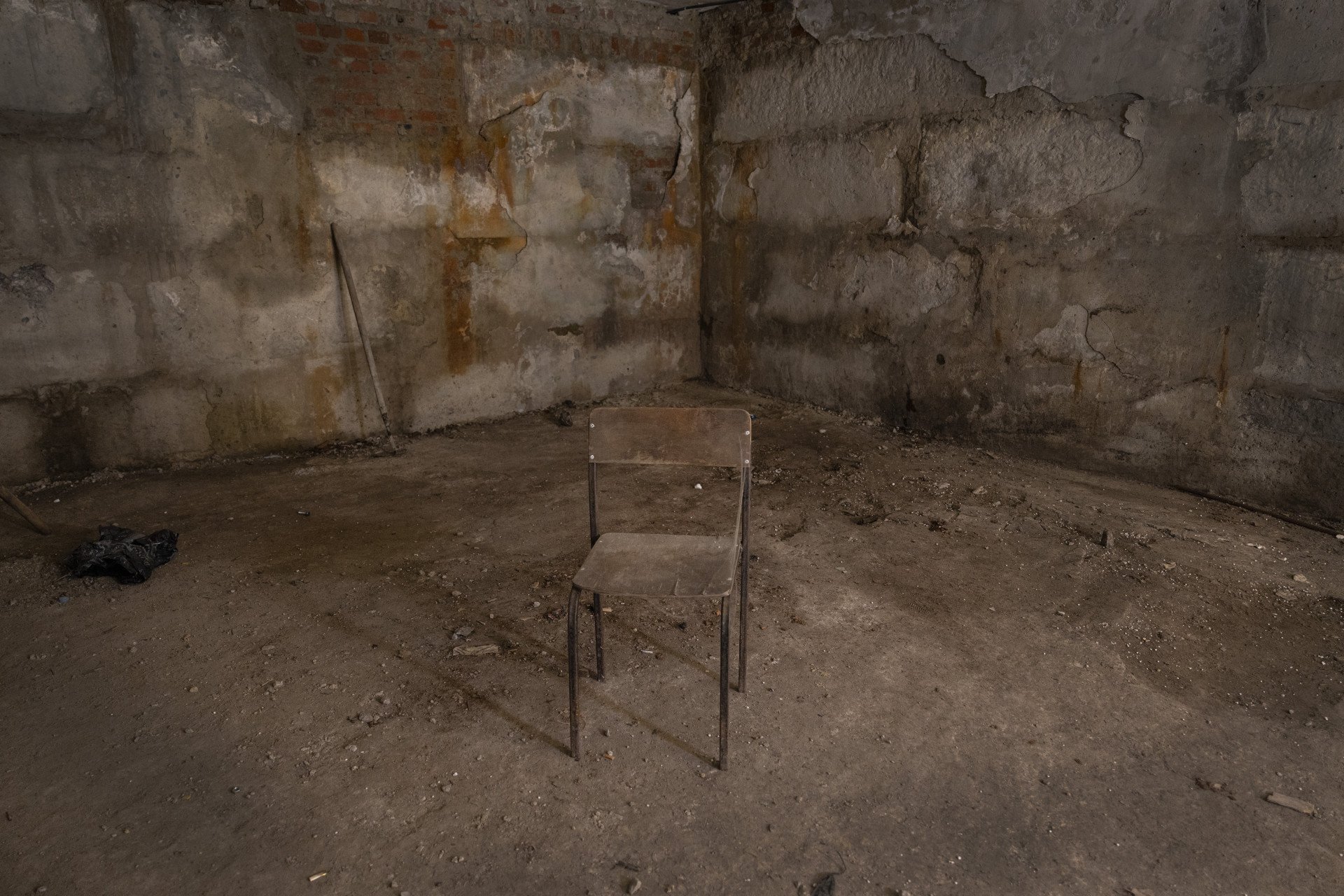
Russell Bentley, an American defector was detained, tortured, and killed in a concentration camp in Donetsk, a new report reveals. The camp, operating under Russian military command, is known for the brutal treatment of prisoners, including Russian soldiers.
The last time Lyudmila saw her husband, Russell Bentley—an American defector to Russia who gained notoriety as a pro-Kremlin internet personality—was on April 8 at 4:15 PM at the administration building in Donetsk.
That day, Bentley and Lyudmila traveled to the city’s Petrovsky district, where they heard the explosions, she said. Bentley, who struggled to make a living by selling war footage and photographs to the Russian propaganda outlet Sputnik, went to photograph the aftermath of incoming shelling. He never returned.
For months, his wife and the broader online community speculated about his death. A formal investigation was launched, and on September 20, 2024, Russia’s Investigative Committee concluded that Bentley had been murdered by Russian soldiers Vitaly Vansyatsky, Vladislav Agaltsev, Vladimir Bazhin, and Andrei Iordanov.
While the initial investigation concluded that Bentley’s car was detonated with his body inside, a new report by ASTRA press, a Russian independent news media launched at the beginning of the full-scale invasion, suggests something more sinister. Astra press has found Bentley was in fact taken to a nearby concentration camp operated by Russia’s 5th Brigade, where he was tortured to death.
Petrovsky-mine concentration camp
As Bentley arrived at the scene to photograph the shelling he was met by soldiers from Russia’s 5th Brigade, the report says. The soldiers allegedly broke Bentley’s phone and shot into the air threatening to kill Bentley in front of passerbyers. Ultimately Bentley was forced into a car and transported to the Petrovsky concentration camp.
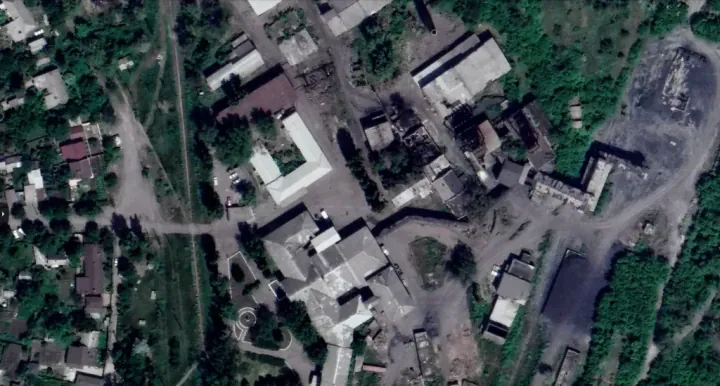
Since 2014 the former Petrovsky coal mine has been repurposed into a concentration camp run by members of the 5th Brigade. It holds both prisoners and Russian soldiers accused of disciplinary violations. Prisoners are subjected to humiliation and torture, which often results in their death. “The military is brought there with bags on their heads,” explains Daniel, a former prisoner. “They don’t feed you. If you want to go to the toilet, they give you a bag and go [into it].” Daniel describes him and his fellow soldiers being hung by chains from their arms and legs from the ceiling. Daniel’s recount is just one of several prisoners who have shared similar horrors at the camp at the hands of the 5th Brigade.
While specifics surrounding Bentley’s fate in the mine are unknown, according to a friend of Lyudmila, Bentley was killed using electric shock torture. Bentley a 64-year-old heavy drinker with a history of drug abuse, did not survive the electric shocks.
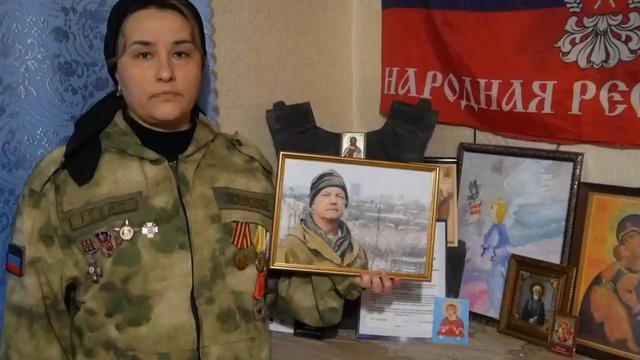
At the Petrovsky Mine, prisoners enter a type of “torture conveyer” where they are either placed in the basement, the electrocution chair, or the mine pit. The mines' earthen pits are referred to as Zindas, and this specific method of torture dates back to the Chechen War when Zindas became notorious for the extreme abuses carried out there.
In these Zindas commanders publicly humiliate their subordinates by urinating on them along with other forms of abuse. Daniel, who was his platoons’ commander, was placed in the pit along with the rest of his unit for refusing to partake in a suicidal assault on Ukrainian positions. “One was cut, the other was shot in the face,” he said, talking about the soldiers in his unit. “I’ll just tell you how we all say it here—Killing in Donetsk is in the order of things, do you understand?”
Not long after giving his recount to Astra, Daniel disappeared. Unconfirmed reports claim Daniel was found and returned to the 5th Brigade.
It’s not just sadism. The real reason is money.
Maxim Vedoprav
Human rights activitist
Astra’s report claims the main reason these men are held captive is for the financial gain of the officers. “It’s not just sadism. The main reason is money,” explains human rights activist Maxim Vedoprav. In the Russian army, a soldier can receive as much as three million rubles for a gunshot wound to the leg, and as much as six million for his death. As a result, commanders of the 5th Brigade have started imprisoning soldiers and coercing them into signing a power of attorney, which transfers their salaries to the commanders. Vedoprav explains that while these soldiers are held in the basement, their commanders receive 200,000 rubles every month for each of them. “Great business in fact”, he says.
Russia’s “Bermuda Triangle”
Since 2014, the so-called “Donetsk People’s Republic” (”DPR“) has widely been considered a place of lawlessness. After its occupation by Russian forces, the region was never officially integrated into the Russian Federation.
When Bentley’s Russian tourist visa expired he became stuck in a kind of purgatory. Unable to travel through Russia and unable to return to the US. There is no Russian consulate in the “DPR” and so Bentley ultimately had to acquire a DPR passort.
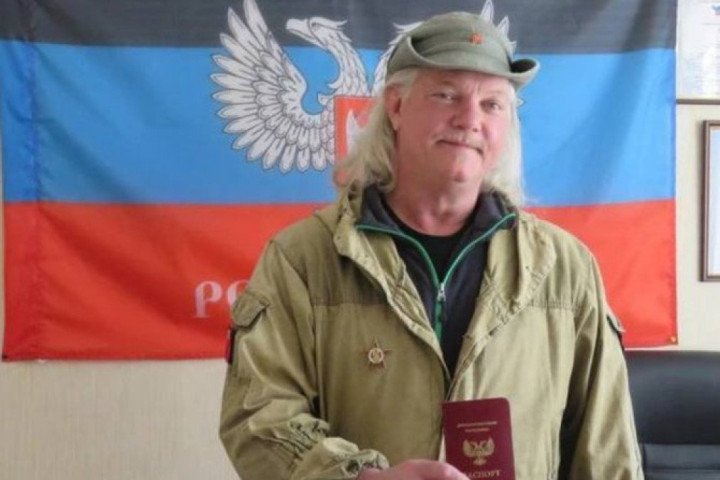
The territorial grey area of the “DPR” benefits Russia by allowing it to carry out unlawful actions, such as those at the Petrovsky concentration camp and filtration camps, under the radar. International law states that a third-party nation must be responsible for holding civilians who are transported from conflict zones. In the case of forcibly deported Ukrainian children, for example, Russia keeps them in the “DPR,” claiming it is neither part of Russia nor Ukraine.
Many more than just Bentley have disappeared into the depths of the “DPR.” Numerous reports of other soldiers fighting in the Donetsk region have surfaced recounting tales of being sent on suicide missions and never being heard from again. The report mentions Irina, the wife of one such soldier recounts a message she received from her husband, right before he disappeared. “The higher-ups know that people disappear here and die in batches.” His message also warned Irina to withdraw all the money from his accounts. “You can only leave [Russia’s] 5th Brigade feet first,” said one 5th Brigade soldier to Astra.
You can only leave [Russia’s] 5th Brigade feet first.
Soldier from Russia’s 5th Brigade
Relatives of Russian soldiers are calling for an inspection of units of the 5th Brigade due to these inexplicable losses. Last April the wife of one soldier from the 5th Brigade said in a collective video message posted to social media, “All his colleagues disappeared with him. How can it be that an entire group is missing, is there a Bermuda triangle?”
How Russia profits from torture and death
The man believed to be responsible for many of these disappearances is Alexei Troshin, known by his call sign “Prisoner.” In late 2023, Putin awarded Troshin the title of Hero of Russia, praising him for leading assault groups on perilous missions. Official reports claim that Troshin personally destroyed 5 tanks and 23 armored vehicles of the Ukrainian Armed Forces.
However, the reality, according to an Astra report, is that Troshin sends his soldiers on suicide missions, taking credit for their successes. Those who refuse or are injured are sent to the Petrovsky concentration camp.
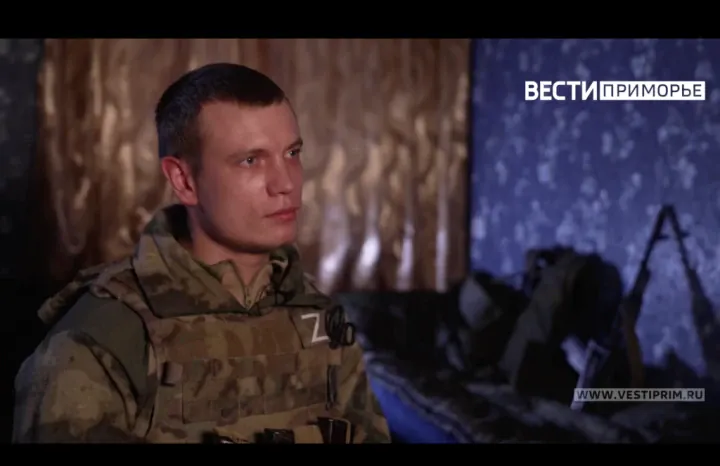
Russia has remained silent about emerging reports surrounding the activities of the Petrovsky mine. While openly torturing prisoners of war is reprehensible, it becomes even more inexplicable when the victims are Russian troops themselves, especially as Putin seeks to garner support for the war.
The death of Russell Bentley sheds light on yet another insidious side of Russia’s war—the brutal and secretive operations at the Petrovsky mine, where prisoners—many of them Russian soldiers—are subjected to torture, abuse, and murder. The use of these camps is not just about sadistic punishment; it’s also a business. Prisoners are exploited for financial gain, with their salary cards manipulated by commanders who profit from their suffering and deaths. Remnants of Russian torture chambers have been discovered in de-occupied areas of Ukraine, with many more reported to exist in Russian-occupied territories.
Bentley, a pro-Kremlin journalist, was a high-profile victim, but he is not the only one to disappear into this murky and lawless region. This so-called “Bermuda Triangle” of the “DPR” has allowed Russia to claim countless lives, torturing prisoners to death in an area where international law and oversight are virtually non-existent. The lack of a clear territorial designation for the “DPR” allows Russia to carry out such—whether against their own or the trapped locals—without consequence, evading accountability while quietly profiting from human suffering. This should serve as a deterrent against any similar type of buffer zone being included in peace talks relating to Ukraine.
Bentley’s death is not an isolated incident. While the Russian government has yet to comment on the existence of the Petrovsky Mine, the silence is telling. The region, left in a state of legal ambiguity, serves as a convenient cover for actions Russia would rather keep hidden from the world.
-fca37bf6b0e73483220d55f0816978cf.jpeg)
-35249c104385ca158fb62273fbd31476.jpg)


-554f0711f15a880af68b2550a739eee4.jpg)



-206008aed5f329e86c52788e3e423f23.jpg)